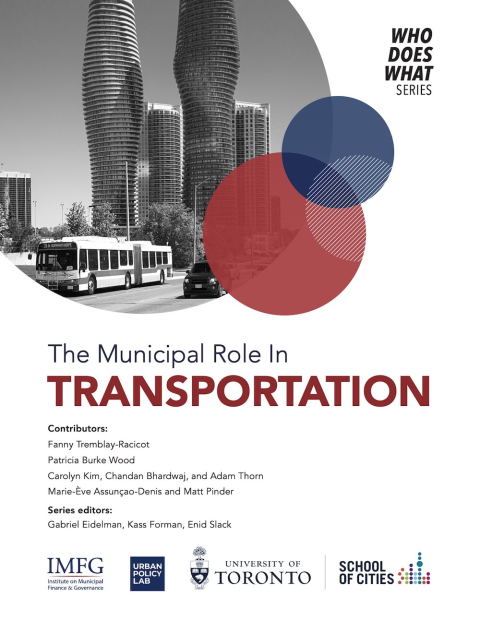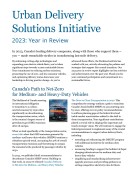Canadian municipalities are essential to creating effective, sustainable transportation networks. With the right policies and support from higher orders of government, municipalities can make their transportation networks more efficient and reduce emissions. This report, published by the Institute on Municipal Finance and Governance, builds on existing literature to examine the current role of Canadian municipalities in transportation and how higher levels of government can support them. It provides an analysis of key issues and proposes policy solutions to strengthen the municipal role in transportation while reducing congestion, increasing the efficiency of goods movement, and promoting active transportation and sustainability. The findings and recommendations of this report will help inform future decision-making and policy-making related to transportation across all orders of government in Canada.
Executive summary
Investments in transportation are among the most visible investments made across all orders of government in Canada, with each order of government illustrating different forms of involvement in the country’s transportation networks. The federal and provincial governments oversee long-distance transportation, while municipalities are responsible for public transit, active transportation, and local highways and roads. By changing policies and priorities across all orders of government, cities could make transportation networks more effective while reducing emissions.
The four papers in this report focus on the role that Canadian municipalities currently play in transportation and how other orders of government can support that role. The papers also propose policies to strengthen the municipal role in transportation while alleviating congestion, moving goods more efficiently, and promoting active transportation and sustainability.








